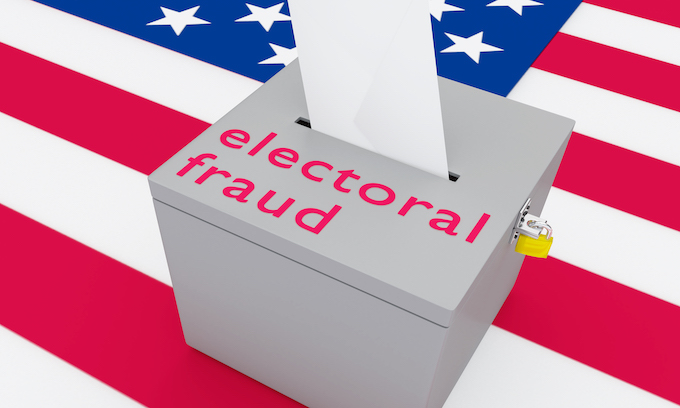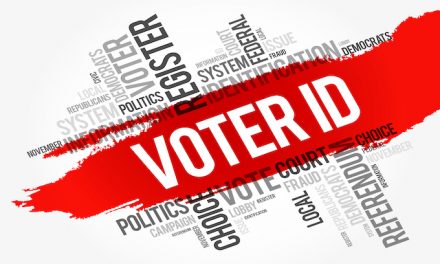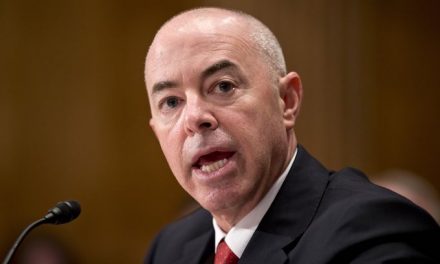LANSING — The Michigan Legislature’s review of the presidential election will continue “well into 2021,” according to Senate Majority Leader Mike Shirkey, with Republicans planning to examine state laws on photo identification and early processing of ballots.
The top GOP senator in a battleground state, Shirkey, R-Clarklake, listed election oversight among his highest priorities for the new year. And lawmakers are prepared to issue more subpoenas to get to the bottom of their questions, he said.
“Our list of things that we believe require review and oversight continues to grow,” Shirkey told The Detroit News. “It’s going to consume that committee (the Senate Oversight Committee) and frankly, the Senate, I believe, for a good part of 2021.”
President-elect Joe Biden, a Democrat, won Michigan by 154,000 votes on Nov. 3, but President Donald Trump and his supporters have pushed to discredit the results. They argue — without evidence — there was widespread fraud that swung the election. — RELATED REPORT: Trump, on tape, presses official to find votes, overturn Biden’s win in Georgia — RELATED REPORT: Trump makes false Detroit turnout claim during call with Georgia officials
In Michigan, the complaints have focused on absentee voting policies and the way ballots were counted in Detroit, the state’s largest city and a Democratic stronghold.
Senate Minority Leader Jim Ananich, D-Flint, criticized Shirkey’s plans to continue focusing on the election in the coming year.
“If the Senate majority leader wants his legacy to be that he wasted this Legislature’s time beating a dead horse and undermining trust in democracy, that’s his prerogative,” Ananich said.
The GOP-controlled Legislature began holding joint oversight committee meetings on the election four days after it occurred. Lawmakers have issued subpoenas for records from Michigan Secretary of State Jocelyn Benson’s office, Detroit City Clerk Janice Winfrey and Livonia Clerk Susan Nash.
While the president’s campaign has urged lawmakers to intervene in the results, the Board of State Canvassers certified them on Nov. 23, and Michigan’s 16 presidential electors formally voted for Biden on Dec. 14.
The U.S. House and Senate will convene on Wednesday to open the electoral votes submitted by the states, count them and declare an official winner. Some Republican lawmakers, including Sen. Josh Hawley, R-Mo., have said they’ll attempt to challenge the results.
Shirkey said he hadn’t been contacted by any members of Congress as of Thursday about Michigan’s results. If he were, the Senate leader said he would tell them the Legislature’s investigation “has only begun” and lawmakers intend for it to be among the “highest of our priorities” in 2021.
But he added about trying to overturn the results, “we have not discovered anything yet that would cause me to want to take that kind of dramatic action in Michigan.”
The Senate’s other priorities for the new year include a “safe and sensible” reopening of the economy, housing, protecting seniors and empowering students, schools and parents, Shirkey said.
What’s ahead for inquiry
Shirkey listed three voting-related areas he believes are most important for review in the coming months, including the ability of local election workers to begin processing and counting ballots before Election Day.
Ahead of the Nov. 3 election, clerks on both sides of the aisle had pressed GOP lawmakers to give them more time to begin processing absentee ballots early. But the Legislature only allowed clerks in large municipalities to begin working with absentee ballot envelopes — without counting them — from 10 a.m. to 8 p.m. on the day before the election.
Due to the lack of early processing time and a record 3.3 million absentee votes cast in Michigan, the state’s ballots weren’t fully tabulated until more than a day after polls closed.
“I own this,” Shirkey said. “I am not shying away from it.”
He pointed to Florida as a “best practice.” That state allows local clerks to begin processing absentee ballots weeks before Election Day.
The Senate leader said he also wants to work on the integrity of the state’s qualified voter file — the list of residents eligible to participate in a particular election — and on photo identification requirements.
This fall, Benson’s office supported a House bill to send notices to registered voters who haven’t participated in an election since 2000 and eventually remove them from voter rolls if they can’t be reached. The bill didn’t advance.
Current Michigan law says voters must present picture identification at the polls or sign an affidavit “attesting that he or she is not in possession of picture identification,” according to the Michigan Secretary of State’s Office.
“That will probably be the one where we see the most attention,” Shirkey said of photo identification verification, a subject on which he said he doesn’t have solutions to propose yet.
Unless Republicans launched a petition effort, reforms to the state’s election laws will require bipartisan support with Democratic Gov. Gretchen Whitmer holding the power to veto bills from the House and Senate.
But Norm Shinkle, a Republican member of the Board of State Canvassers, said he believes people on both sides of the aisle have concerns about the administration of elections. Shinkle was the lone member of the four-member board who didn’t vote to certify the Nov. 3 election results. He abstained.
The Legislature needs to pursue reforms, and they need to be “common sense,” Shinkle said last week.
___
(c)2021 The Detroit News
Visit The Detroit News at www.detnews.com
Distributed by Tribune Content Agency, LLC.
—-
This content is published through a licensing agreement with Acquire Media using its NewsEdge technology.



















Voting should be in person, with voter Id and signature matches. Cameras and Federal Marshals in polling places, with poll watchers standing right over the people working at the polls, so no nonsense goes on. Absentee ballots for the military and disabled, but poll watchers and Federal Marshals with chain of custody, so nothing gets changed by the fraudsters!
Strange that in the heavily fraud infested Democrat run cities the race of the vote counters was about 90% black? Are there no white people living in those cities qualified to steal the votes?
More likely they are unwilling to participate in the fraud.